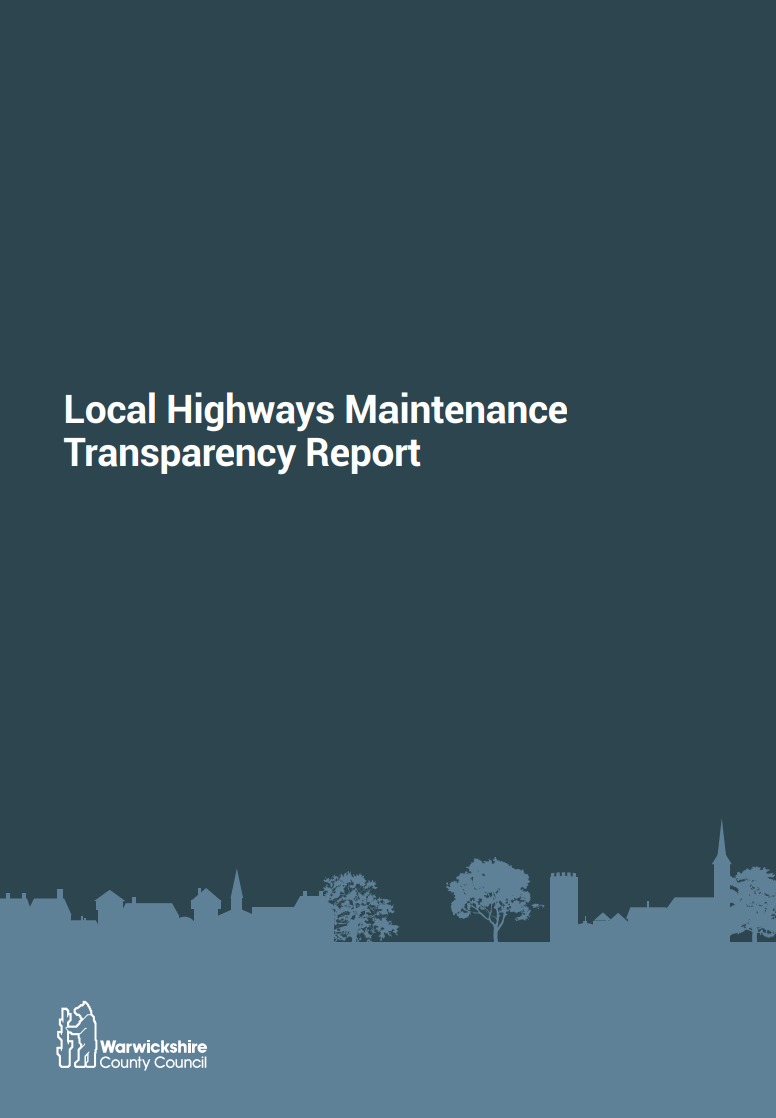Additional information on plans
Decarbonise your maintenance operations
Warwickshire County Council has adopted a range of initiatives and strategies aimed at decarbonising maintenance operations.
A data-driven asset management approach underpins the council’s highway maintenance strategy. By planning repairs more efficiently and adopting preventative maintenance techniques, we reduce fuel consumption, emissions, and the need for repeated site visits. Coordination with other council teams ensures road space is shared effectively, further minimising disruption and carbon output. We use low-carbon materials and techniques, such as lower temperature products as standard and recycled asphalt, which reduce emissions, improve air quality.
Construction wastes are recycled to be reprocessed into new materials for example kerbs are turned into road stone. On a recent scheme, working in conjunction with our supply chain we reproposed old railway ballast into brand new asphalt to be laid on a scheme in Stratford. This significantly reduces the need for fresh aggregates which in turn reduces emissions.
Smart Traffic Management systems are used across the county’s traffic signals. These systems help reduce vehicle emissions by minimising congestion and idling. Additionally, new environmentally friendly traffic signals (Ecofriendly traffic lights) have been installed, which consume over 50% less power than traditional systems. The council also ensures that traffic signals are only installed where necessary, balancing safety with environmental impact. Pedestrian and cycle crossings are strategically placed to encourage active travel.
The transition to LED technology has been another key step. LEDs have been installed in both traffic signals and street lighting. Around 90% of streetlights now using this energyefficient technology. This shift has dramatically reduced electricity consumption from 25 million kWh in 2011 to approximately 9 million today, equivalent to the annual usage of nearly 5,925 typical households. This energy saving is further supported by the implementation of part night lighting, with approximately 63% of street lights operating under this approach.
Sustainable Drainage Systems (SuDS) are used to manage surface water runoff in an eco-friendly way. These systems not only reduce the carbon footprint of drainage operations but also support biodiversity.
To offset emissions that cannot be eliminated, tree planting is undertaken. This not only absorbs CO₂ but also enhances air quality. To understand the eco-benefits our trees provide to the County, an assessment was carried out on the data in 2024. An eco-benefit is a quantification of all the positive benefits of trees, which result in a positive influence on the environment. The 141,652 trees owned or managed by Warwickshire County Council, store 116,009 tonnes of carbon, which has a benefit value of £116,009,102. This is equivalent to the carbon emitted by 14,322 houses a year. WCC has pledged to plant one for every resident of Warwickshire.
Green infrastructure is also promoted through policies like the highway verge management policy, which encourages the creation of wildflower verges. These not only enhance biodiversity but also help absorb CO₂ and improve air quality.
Recognising the risks posed by climate change, the council has taken steps to make its road network more resilient. This includes using climateresilient materials such as modified asphalts and permeable paving, and increasing the frequency of maintenance activities like gully cleansing.
The council’s climate change team have produced a Sustainable Futures Strategy. This strategy aims to achieve net zero emissions across the council by 2030 and county-wide by 2050 or earlier. A risk register, which highway asset managers feed into, considers the risks climate change poses to transport infrastructure, such as flooding, extreme temperatures, and high winds, and outlines actions to mitigate these risks in the short, medium, and long term.
In Warwickshire we are working closely with Live Labs 2 and Proving Services to develop a carbon calculator which would enable all local authorities to easily assess their emissions. Once assessed Local Authorities can benchmark against each other and help share best practise and work to reduce emissions. Warwickshire is at the forefront of this new and exciting area of work and we are helping to drive the national conversation.
